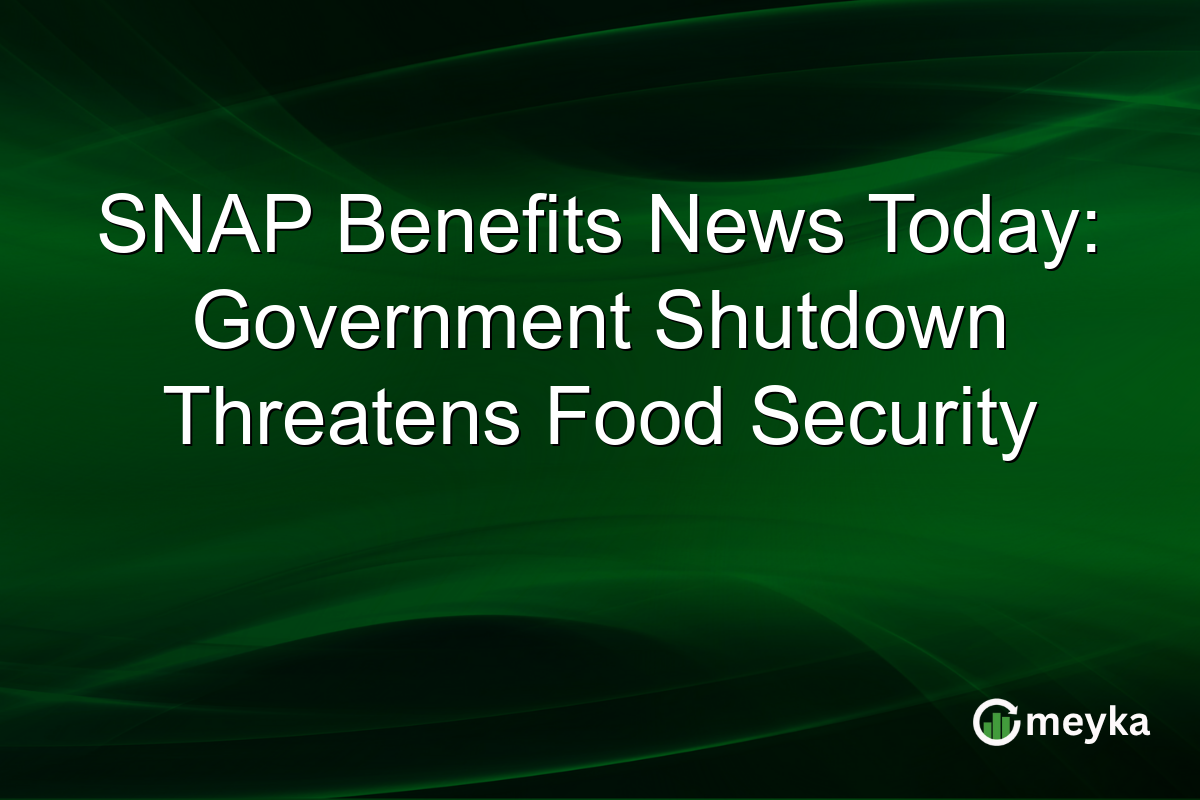SNAP Benefits News Today: Government Shutdown Threatens Food Security
The recent federal government shutdown has sparked widespread concern, particularly among the millions reliant on SNAP benefits. With these essential food assistance programs at risk of interruption, many low-income families might face severe food insecurity. States like Connecticut and New York are stepping in with emergency funding to mitigate the potential impact, underscoring the urgent need for stable federal intervention.
Understanding SNAP and Its Importance
SNAP, or the Supplemental Nutrition Assistance Program, is crucial for millions of Americans. It provides essential food assistance to low-income families, ensuring access to nutritious meals. Nationwide, SNAP supports roughly 42 million people. This aid is pivotal in reducing poverty and fostering healthy communities. However, amidst a federal government shutdown, SNAP benefits may face disruptions, leaving families vulnerable.
The program’s vulnerability is exacerbated by political stalemates that can halt crucial funding. This shows the delicate balance required in federal budgeting to maintain such vital programs.
Impact of the Federal Government Shutdown
The ongoing federal government shutdown threatens to delay or halt SNAP benefits distribution. If unresolved, millions could experience significant disruptions in food access. Already, families are anxious about future support.
In response, states are taking measures to prevent a food assistance crisis. With federal funding in jeopardy, local governments must innovate solutions to sustain their communities. This scenario illustrates the interdependence of federal and state resources in crisis management.
Emergency Funding Initiatives in Connecticut and New York
Connecticut and New York have announced emergency funding to aid residents who rely on SNAP benefits. Connecticut’s Governor Ned Lamont revealed plans to allocate additional resources to support local food banks (source). Similarly, New York Governor Kathy Hochul announced a $30 million initiative to reinforce food assistance (source).
These steps are essential lifelines for communities at risk of losing their primary nutritional support. They also highlight the necessity for robust and adaptable local governance in times of federal uncertainty.
Final Thoughts
The federal government shutdown’s implication on SNAP benefits reveals the critical dependency on steady funding to secure basic needs for millions. While states like Connecticut and New York are commendably bridging gaps through emergency funding, the lack of federal reliability poses long-term risks. Looking ahead, solid federal-state collaboration is vital to prevent similar crises. For families affected, awareness and access to state support is crucial until federal solutions stabilize. This issue underscores the need for proactive policies that safeguard food security across the nation.
FAQs
During a federal government shutdown, SNAP benefits may be delayed or halted, risking access to food for millions of low-income families who depend on this assistance.
Connecticut has announced additional resources for food banks, while New York has committed $30 million to reinforce food assistance efforts during the shutdown.
Federal intervention ensures consistent funding for SNAP, which helps millions access essential nutrition and reduces poverty nationwide. Its absence threatens food security.
Disclaimer:
This is for information only, not financial advice. Always do your research.






